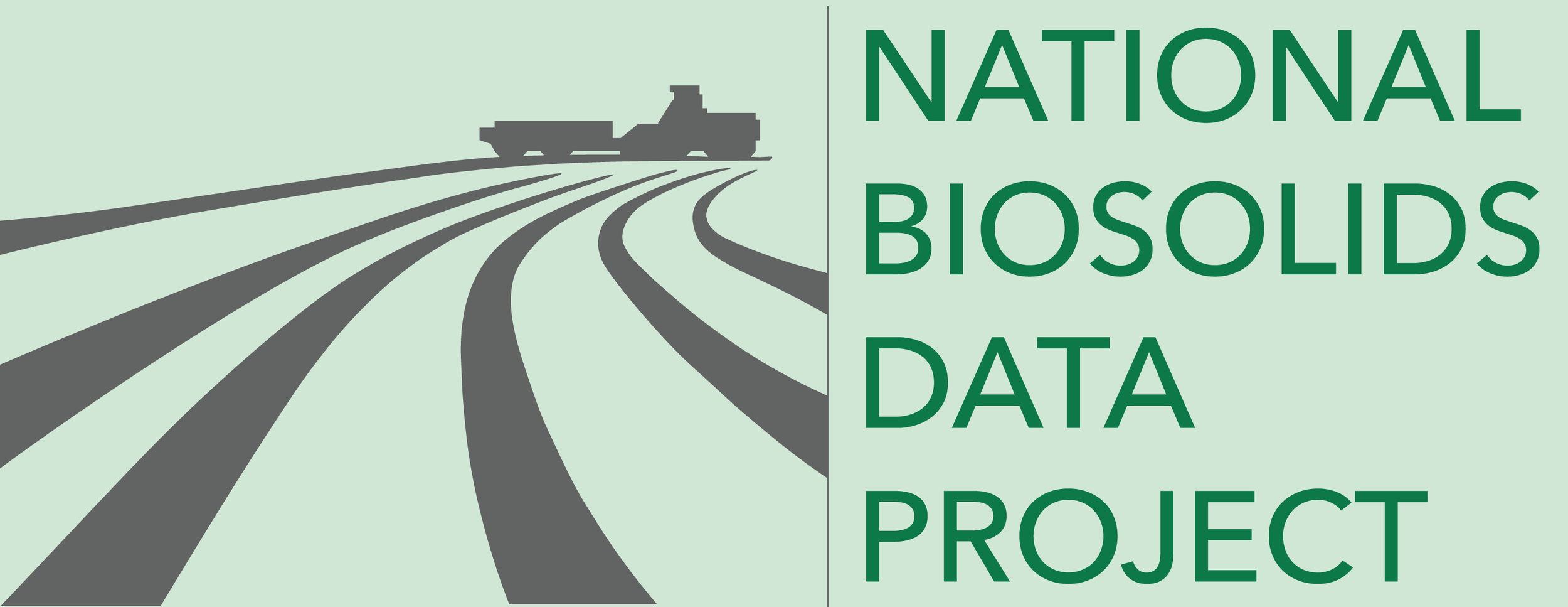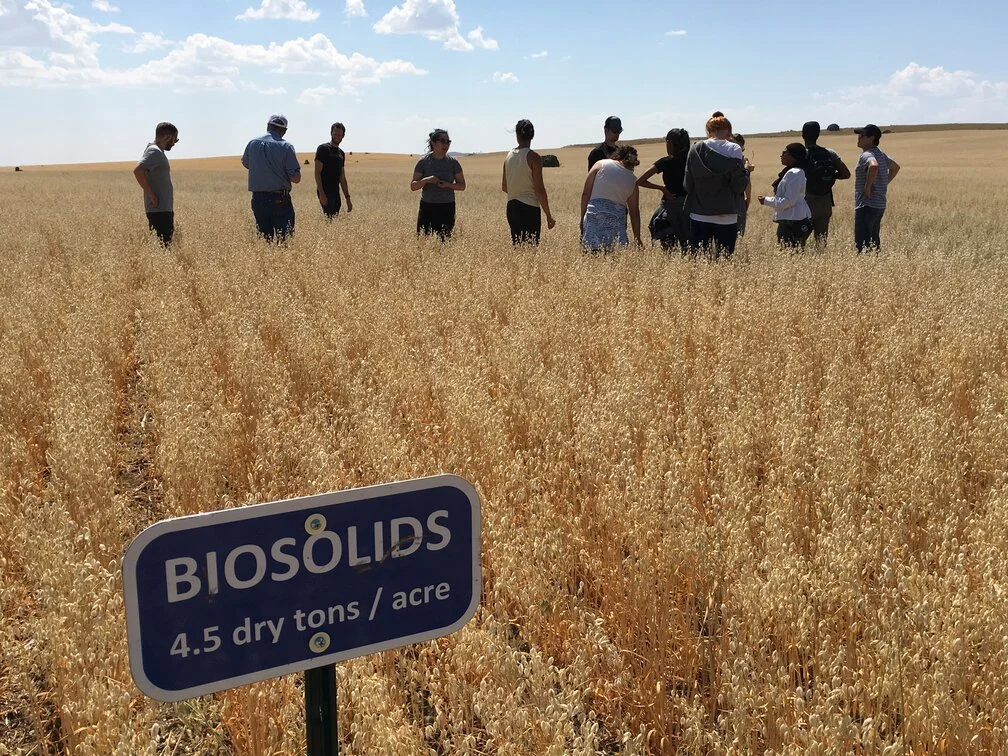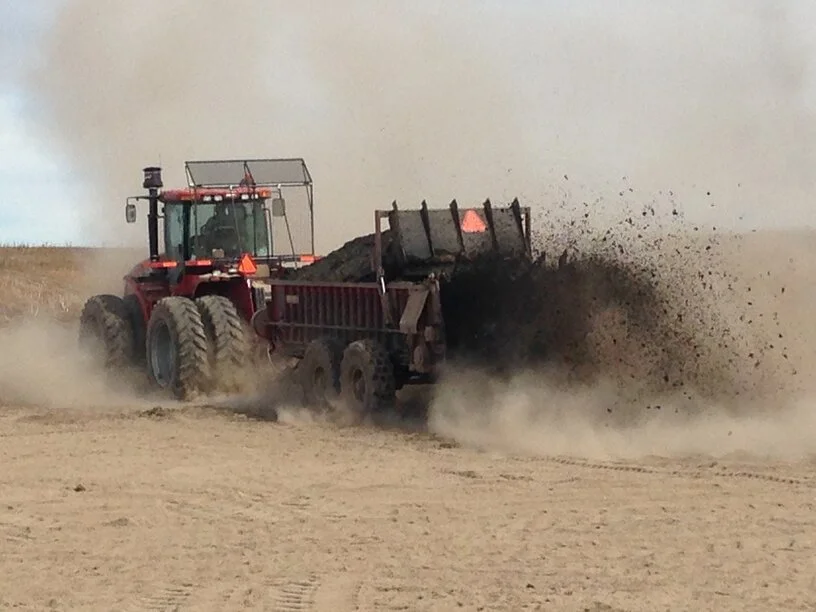State Data
Confidence in data for this state:
HIGH
2018 data unless noted.
Definitions
Terms used on this website and in data sets are defined & discussed here.
Loop® tour. Photo courtesy of King County’s Biosolids Program (which produces Loop®).
Boulder Park research plots. Photo courtesy of Washington State University.
Loop® biosolids land application. Photo courtesy of King County’s Biosolids Program (which produces Loop®).
State Statistics Dashboard
State Summary
● Biosolids land application has been routine for most water resource recovery facilities (WRRFs) since the late 1980s. Recycling biosolids is encouraged by state law. The large majority of biosolids are generated in the wetter, western part of the state and are land applied in the drier central and eastern regions where large agricultural tracts of land have been permitted for 40+ years and unique centralized biosolids brokers serve as distribution hubs. Relatively long biosolids transport distances are common.
● In 2018, agricultural land application of bulk, Class B biosolids accounted for about 49% of the state’s biosolids, including a large percentage of the biosolids from King County (Seattle). An estimated 5% of the state’s Class B biosolids was used on forest lands.
● Exceptional quality (EQ) biosolids are produced by several communities, including Tacoma with its famous Tagro products. About 23% of Washington’s biosolids are EQ products distributed for turf, landscaping, horticulture, and gardening.
● In 2018, there were five WRRFs with sewage sludge incinerators (SSIs); two are converting to other biosolids management systems in the 2020s.
● Washington has the most robust, long-term support for biosolids recycling of any jurisdiction in North America, involving public and private collaboration, universities, and the oldest and best regional biosolids association in the country: Northwest Biosolids.
Loop® gardening soil. Photo courtesy of King County’s Biosolids Program (which produces Loop®).
Tagro raised beds. Photo courtesy of BioCycle.







